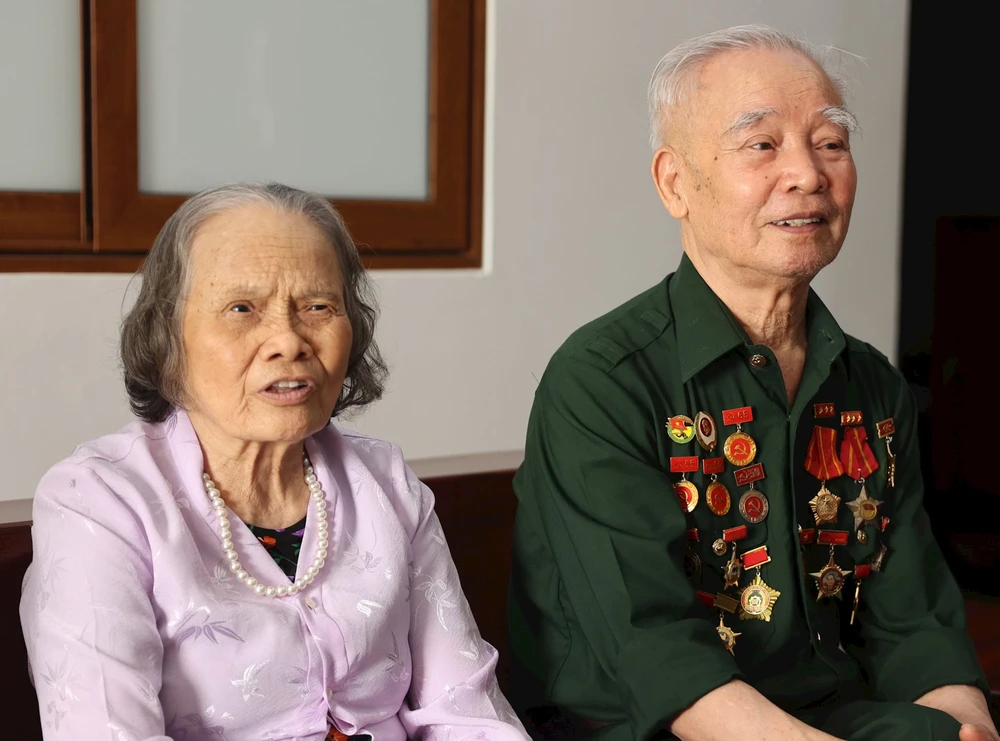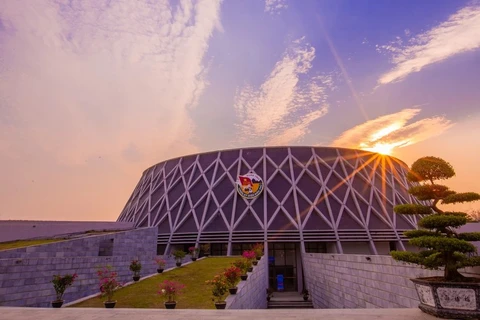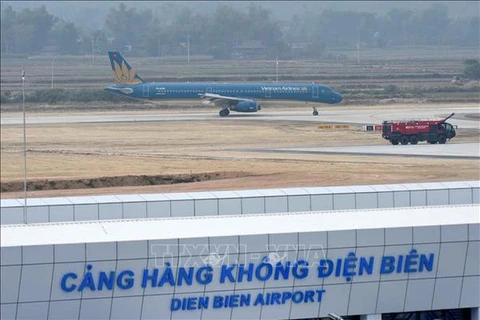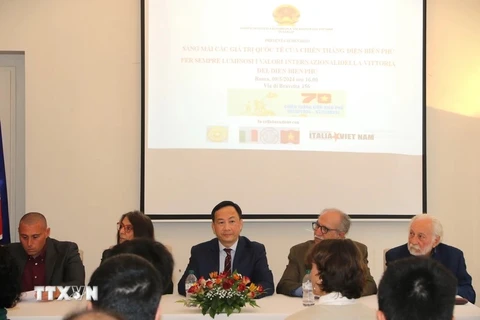
Dien Bien (VNA) - Four years after the liberation of Dien Bien Phu, a number of army units were ordered back to the former battlefields to engage in economic development, including the building of agricultural farms and repairing roads.
After their official demobilisation, each company became a production team right on the land stained with blood of their comrades in arms. Many former soldiers came back to their hometowns and brought their family members to Dien Bien to settle down.
Sergeant Hoang Van Bay, born in 1933 in the central province of NgheAn, is a case in point. The Dien Bien Phu veteran settled down right next to the Dien Bien airport. Together with thousands of his comrades in arms, hebecame a member of the military-run Dien Bien Farm – the descendant of Regiment 176 under Division 316.
Tractors and farm equipment replaced the guns in their hands, and their mission was not fighting but farming, building roads and irrigation facilities, and producing construction materials.
On December 22, 1960, the farm was turned into the State-run Dien Bien farm under the Ministry of Farms, continuing to open virgin land for agricultural production. Bay took his family to the former battlefield the same year.
Now over 90, Bay still clearly remembers the first days of his civilian life in Dien Bien. “Our first assignment was to remove the barbed wire, fill the trenches, clear the remaining mines, and build houses,” he said, recalling the difficulties he encountered in his new work.

Dien Bien frontier transporter Nguyen Thi Ly, born in 1936 in the central province of Thanh Hoa, and her husband Hoang Hai – also a Dien Bien Phu veteran –settled in Dien Bien in 1962 and started building the Nam Rom irrigation work a year later. It took the couple’s team, consisting of more than 2,000 people from the provinces of Hung Yen, Thai Binh, Nghe An, Ha Tinh, Nam Dinh, Vinh Phuc, and Thanh Hoa, six years to complete the construction. This played a vital role in helping the locality get out of poverty and food shortage.
Ly said she feels proud of her role in the huge changes in Dien Bien and expressed her hope that the younger generations will further improve the locality.

Sharing Ly’s sentiments, veteran Nguyen Hong Thai, born in 1932 in the port city of Hai Phong, said he is sure that the younger generations, armed with advanced technology, will contribute hugely to the construction of the country as a whole.
After the war, Thai had the chance to leave Dien Bien for his career, but he said the thought of his fallen comrades kept him there.
“Seventy years have passed by, we all feel happy with the changes, but can’t help thinking of our fallen comrades in arms,” he said. “The price we paid is very dear.”
Major General Luu Trong Lu, Chairman of the Veterans’ Association of Dien Bien province, described the Dien Bien veterans as not only those who shed their blood and sacrificed their life for peace, but also the first to reconstruct the former battlefield into a modern Dien Bien today.
Their children and grandchildren are now successfully continuing their career, with many holding key positions in the provincial system, the General said./.






















